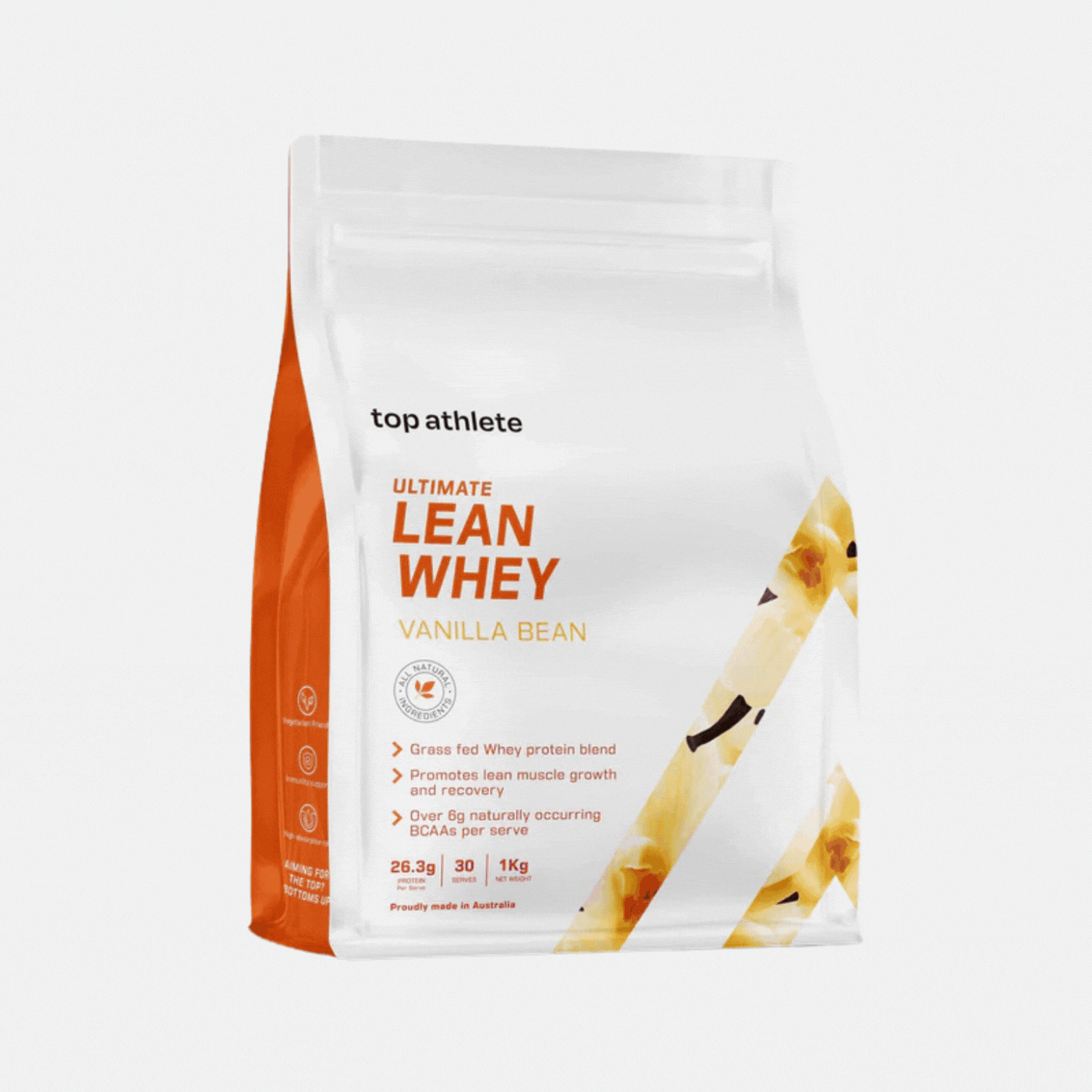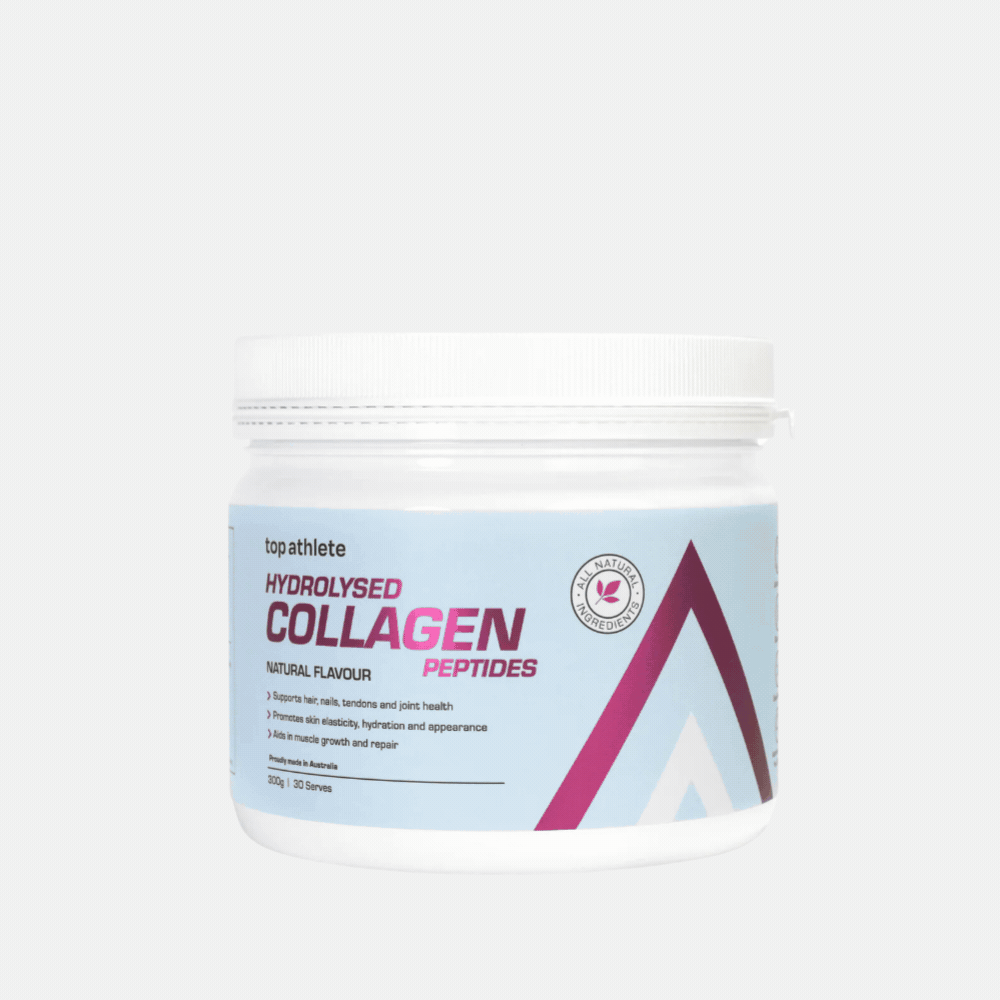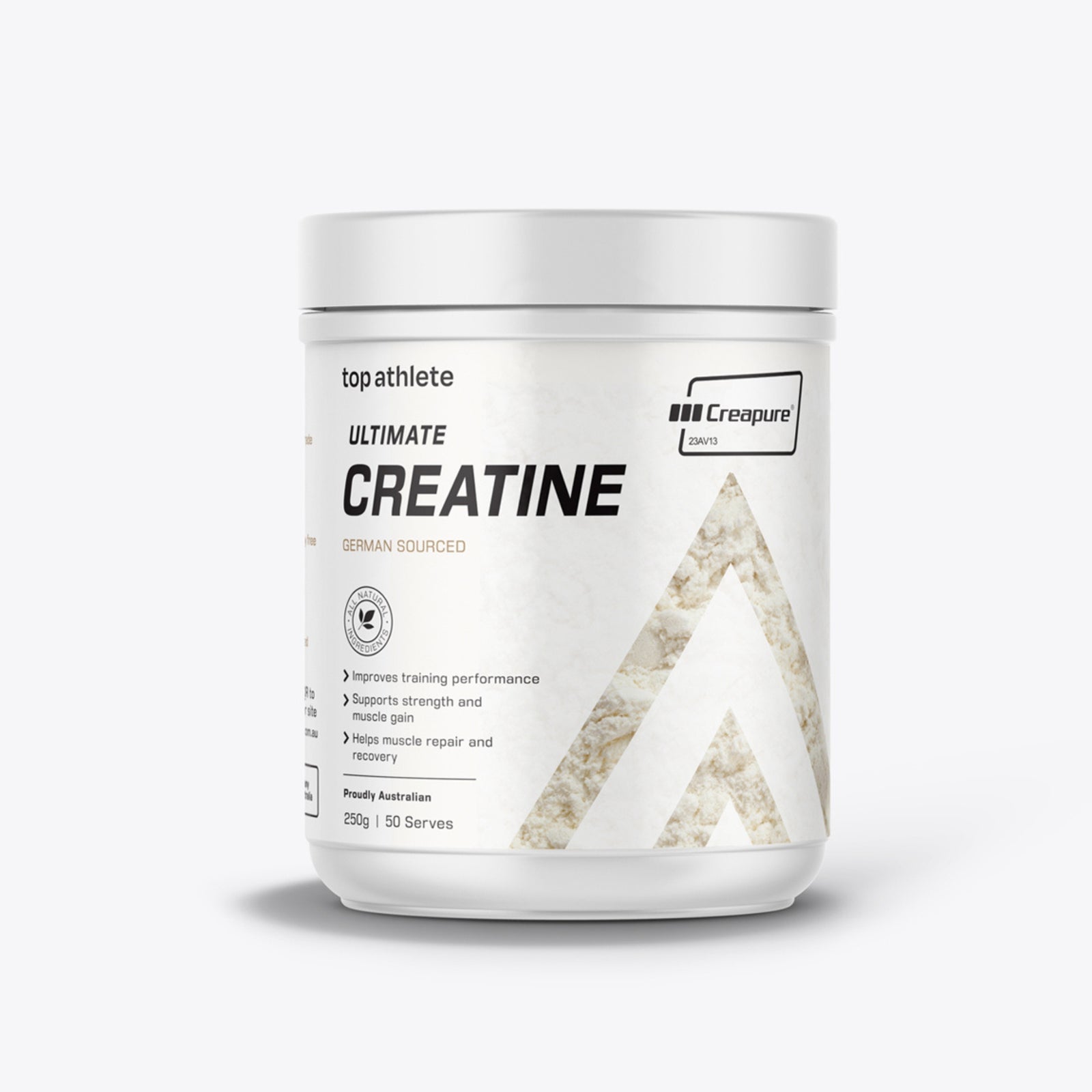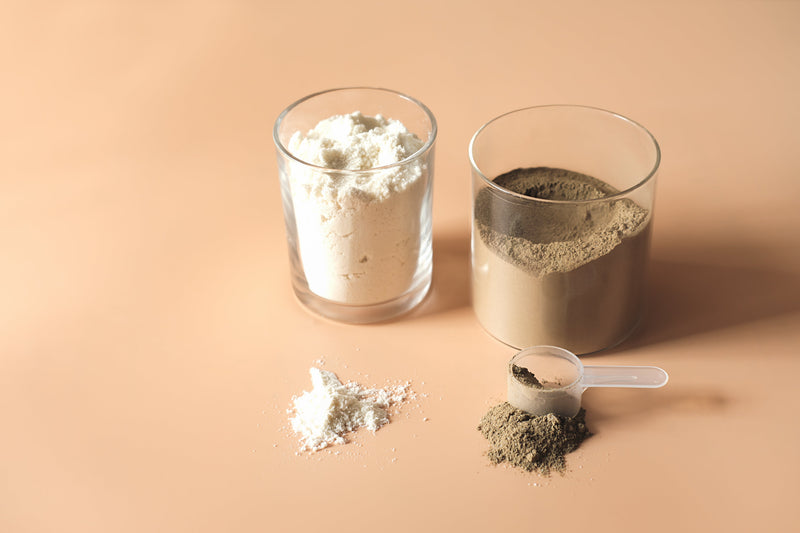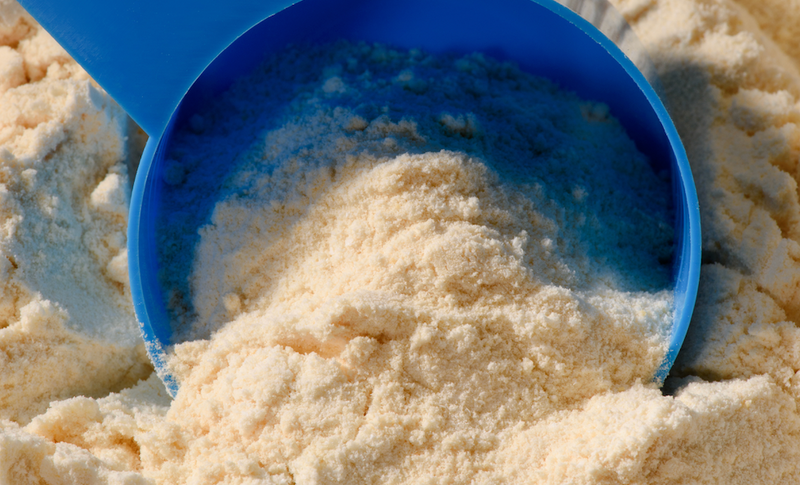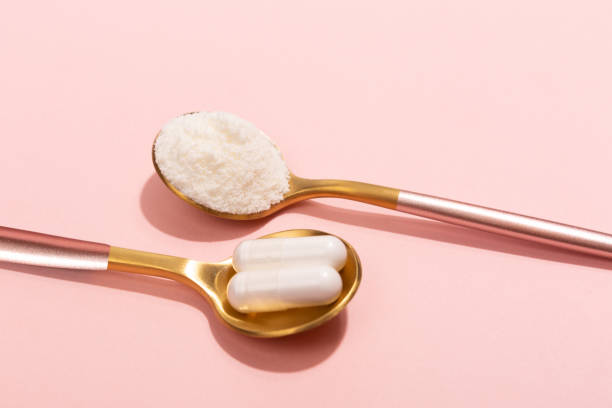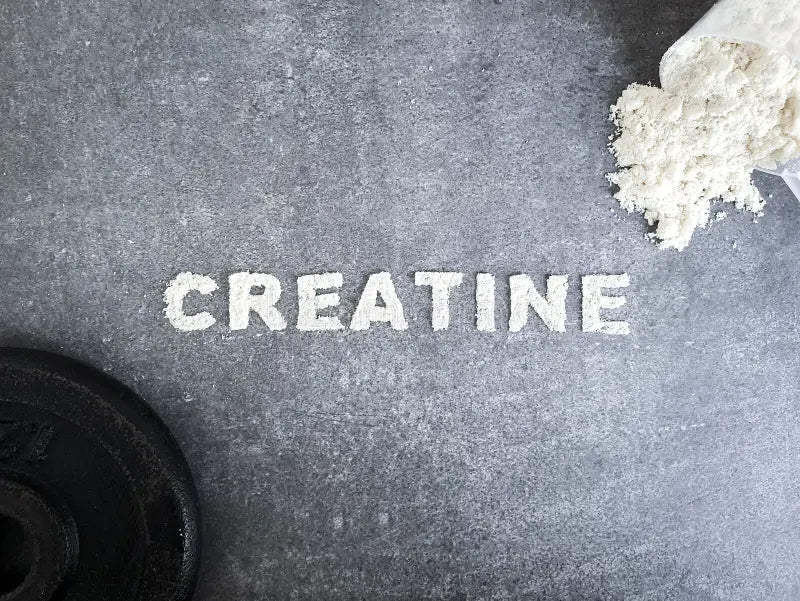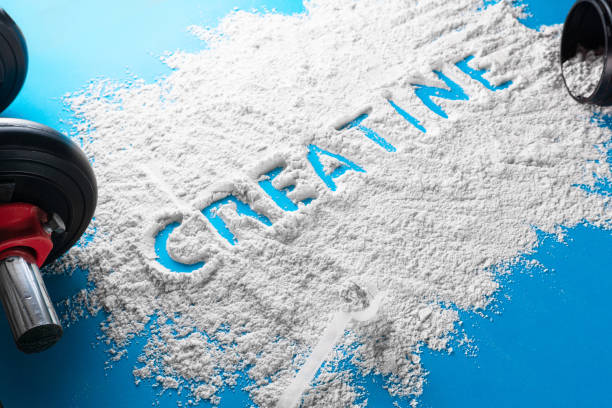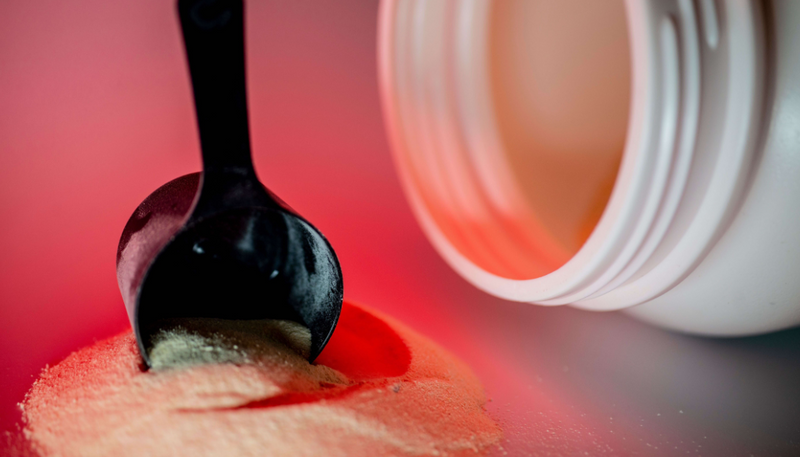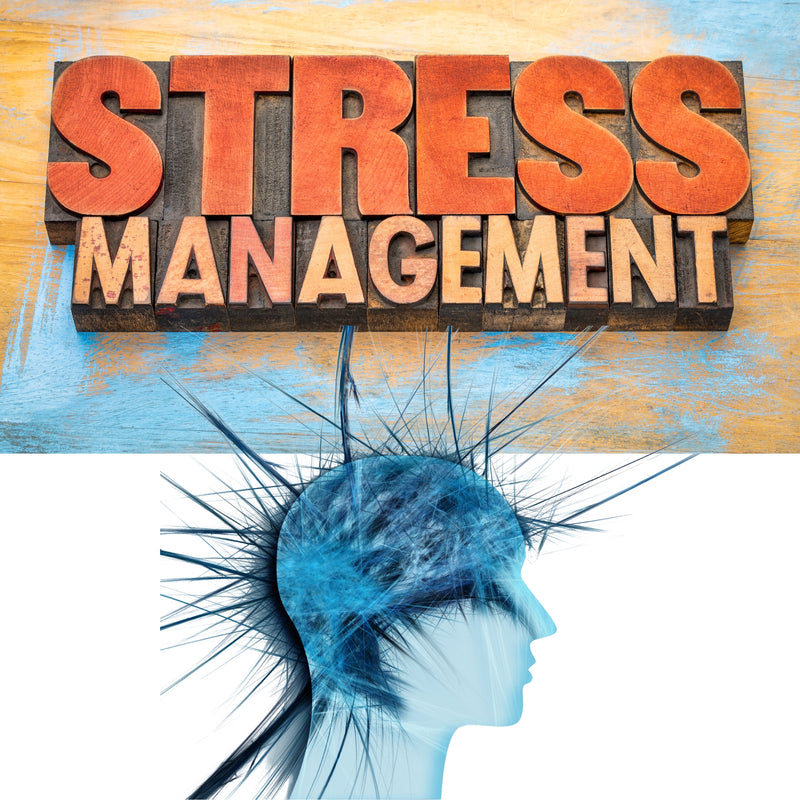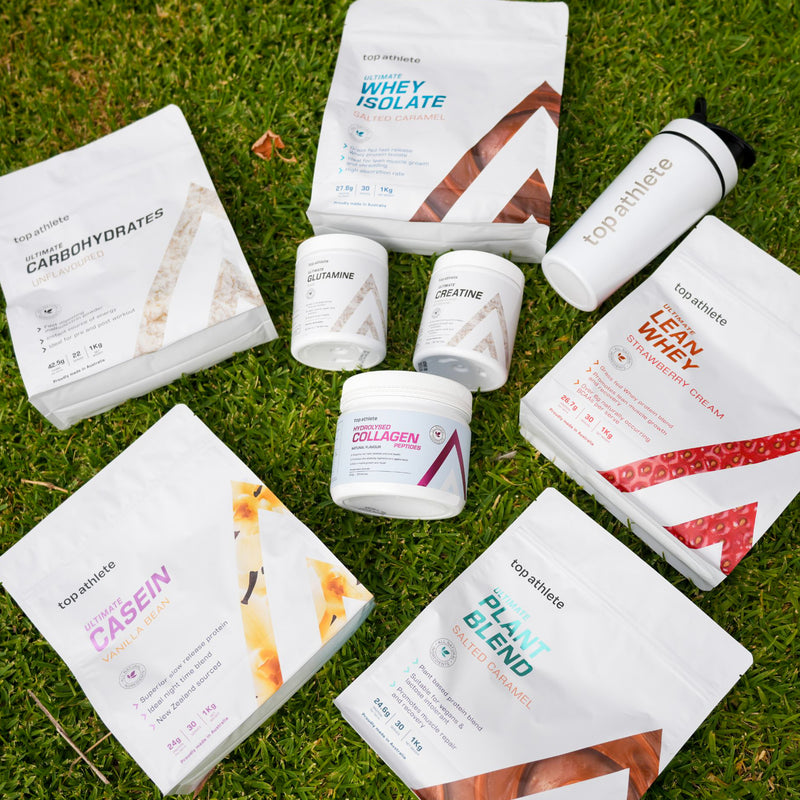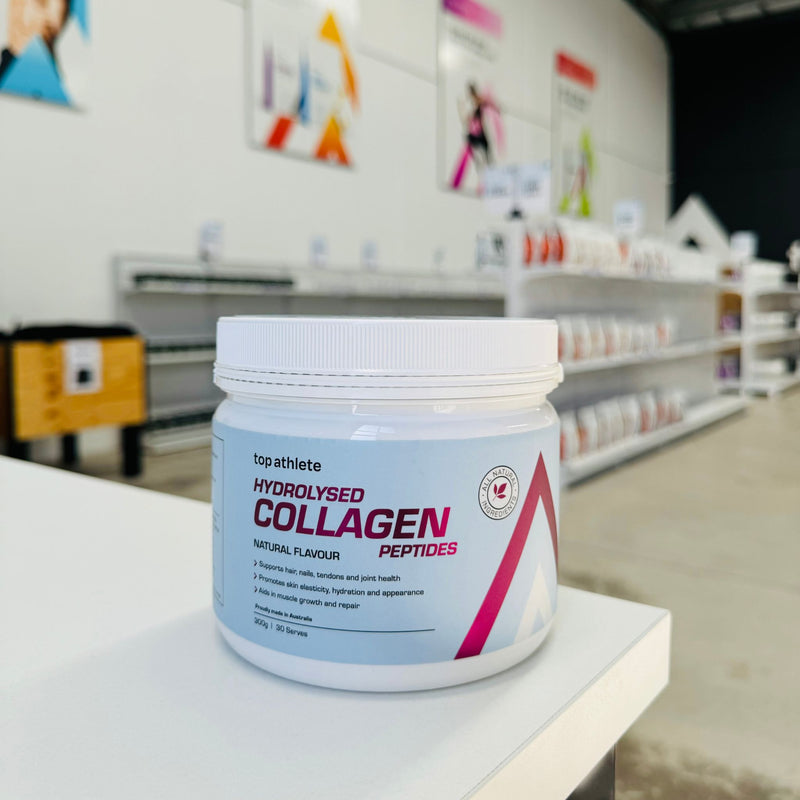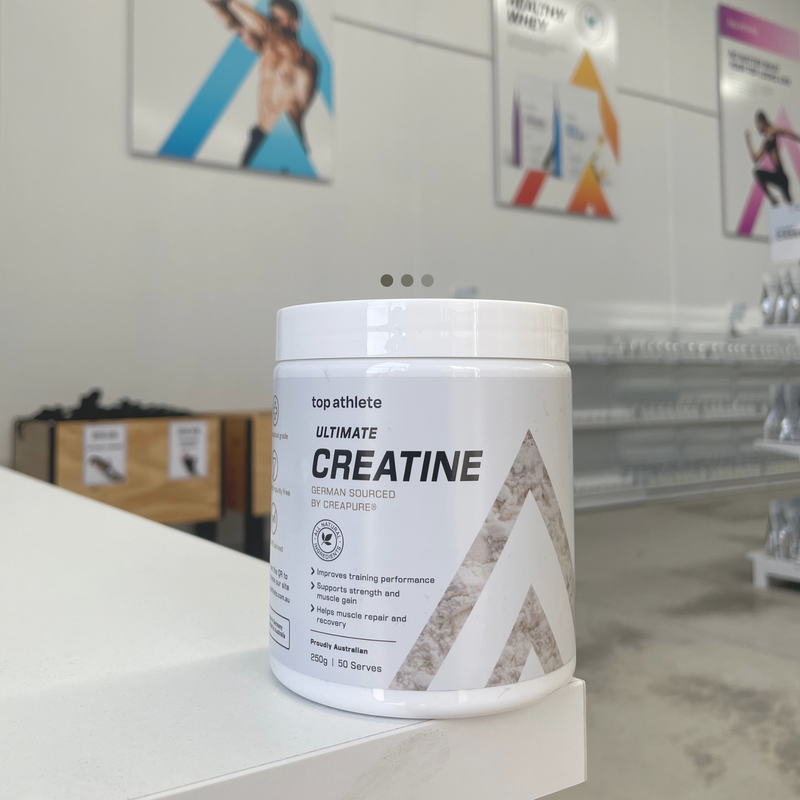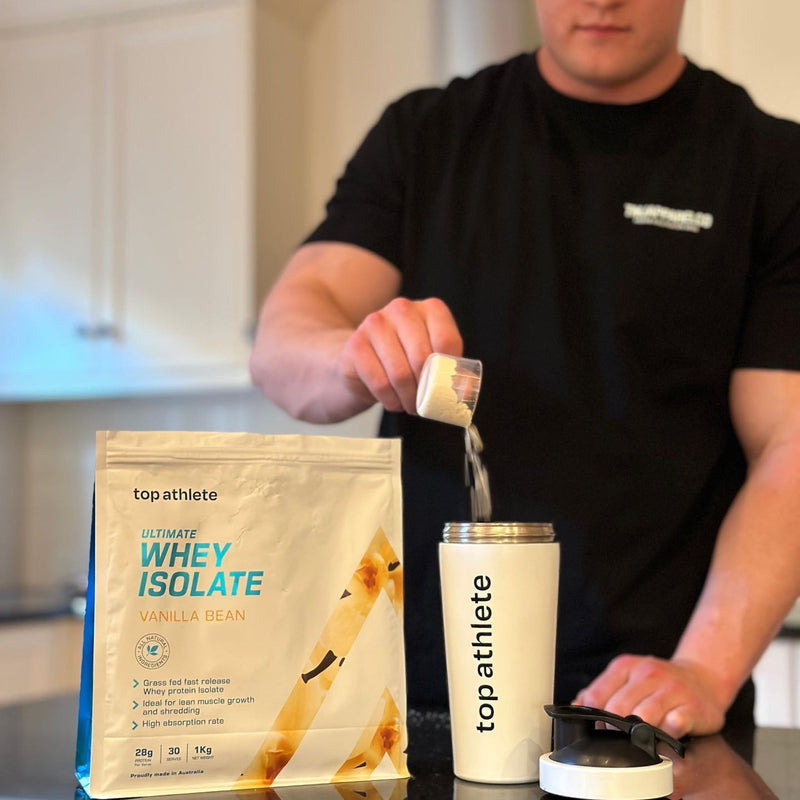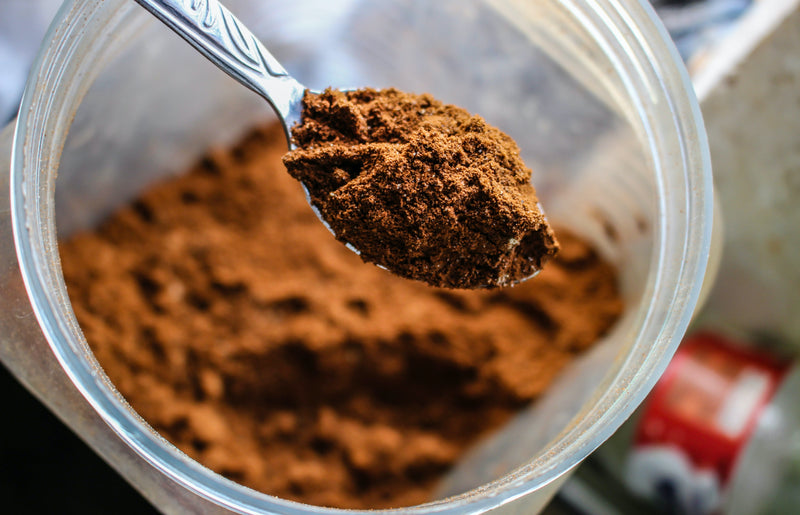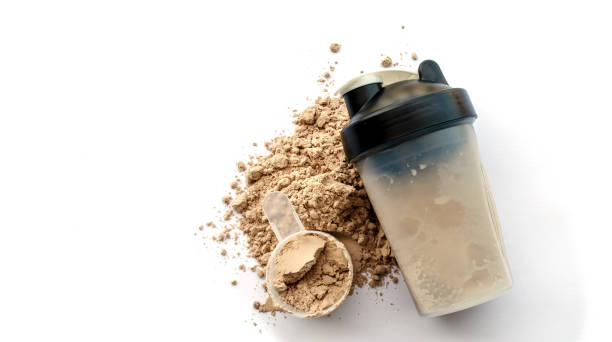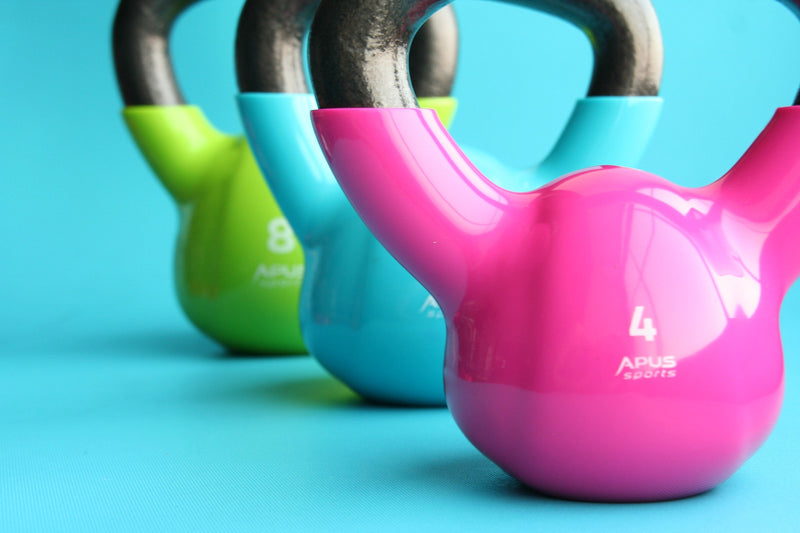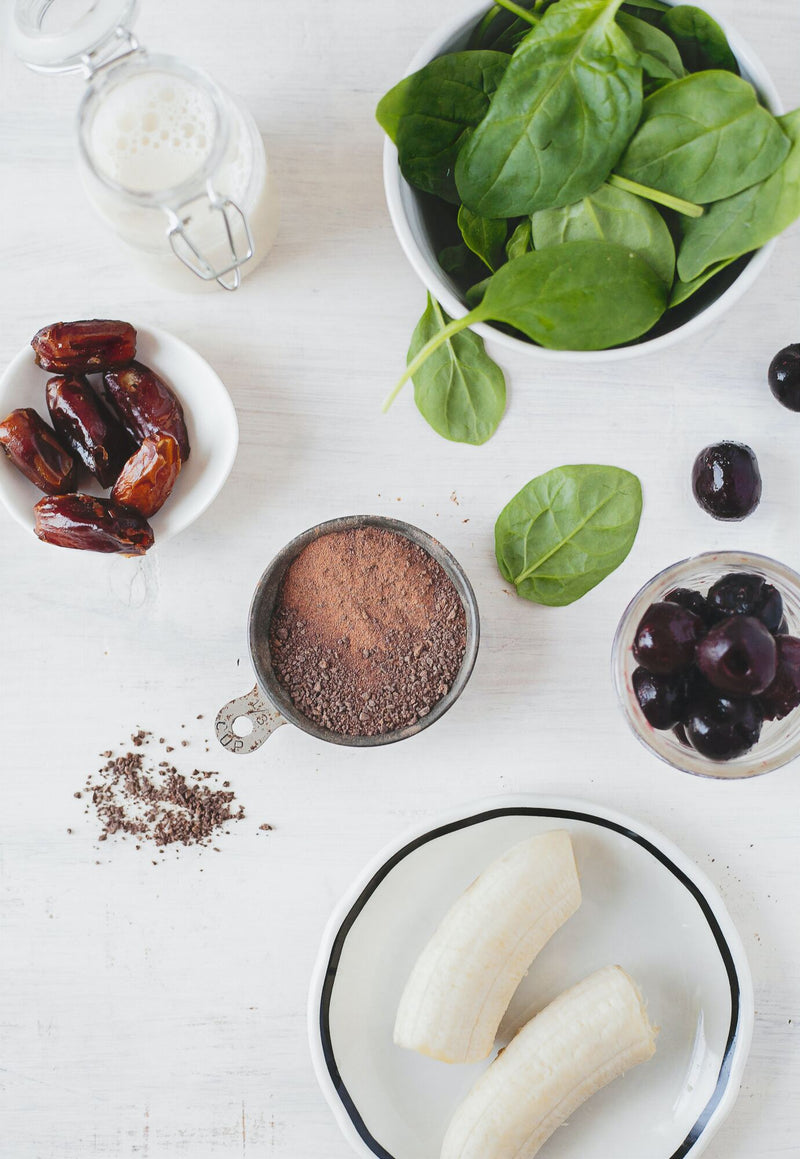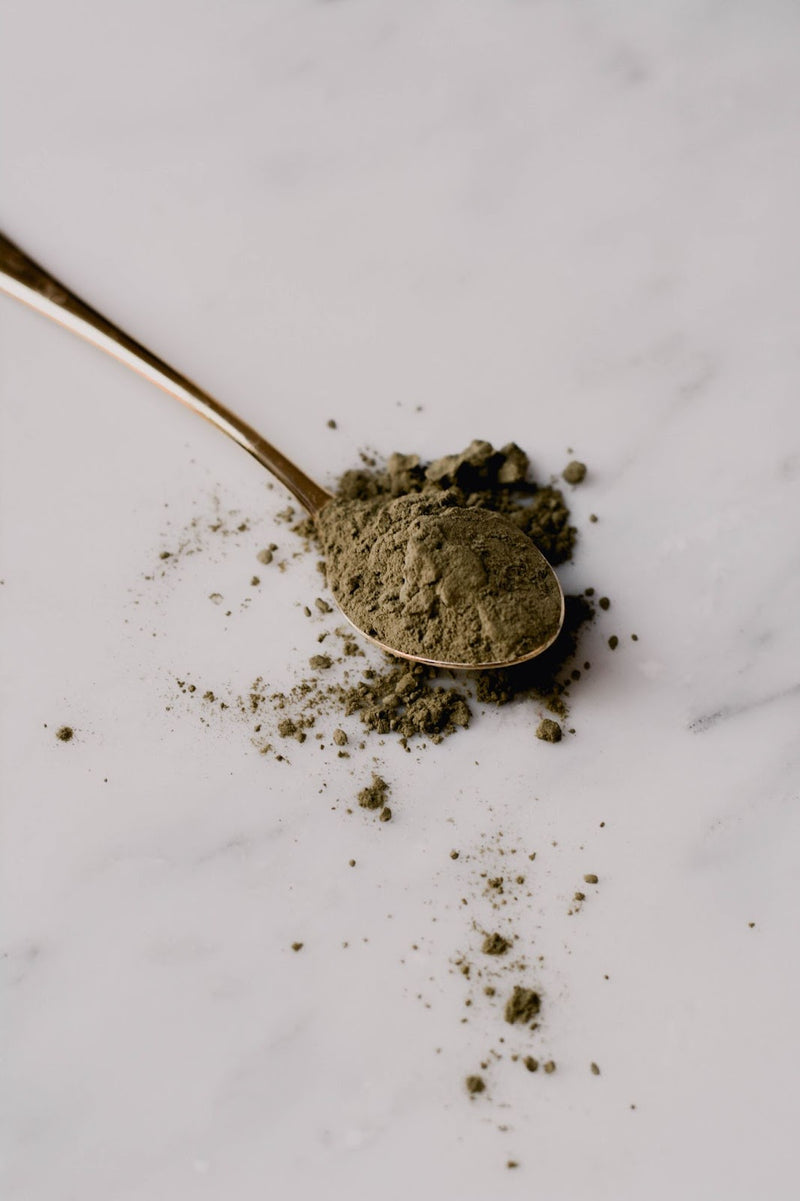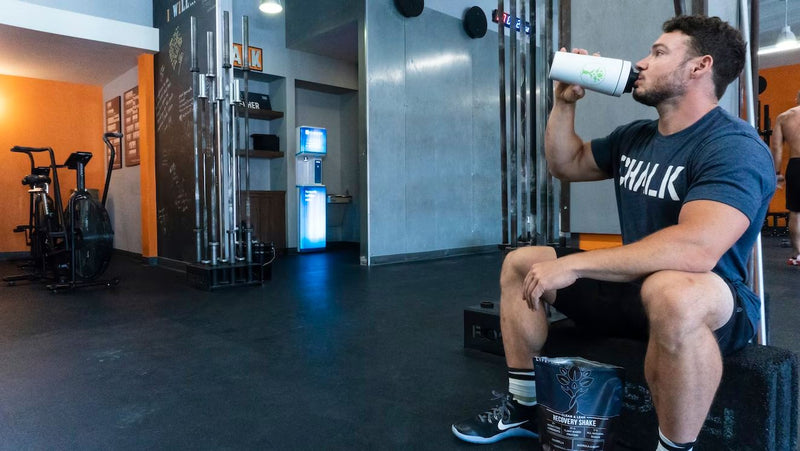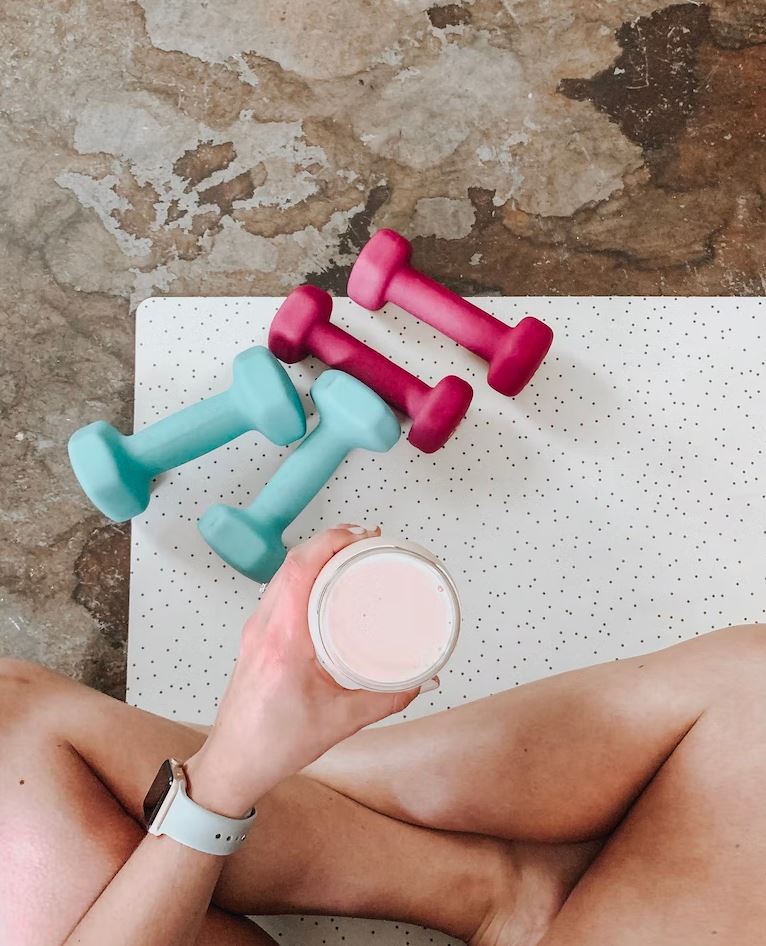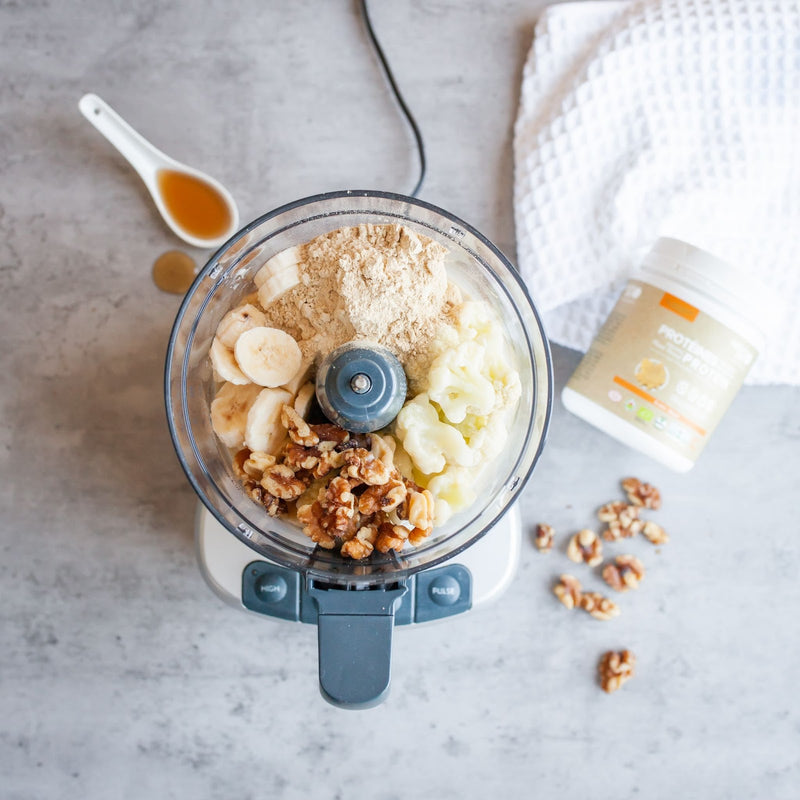Creatine Monohydrate is one of the most popular dietary supplements on the market today. Known for improving strength, endurance and muscle growth, it’s the ‘go to’ choice for exercise enthusiasts, body builders and athletes globally. If you’re wondering whether this powerhouse supplement is really worth it, it’s a resounding yes from us. Let’s take a look at some of the benefits of creatine monohydrate and how it’s taking the fitness world by storm.
What is Creatine Monohydrate and How Does it Work?
Comprising of 3 amino acids - arginine, glycine and methionine, creatine monohydrate is a naturally occurring compound that is stored mainly in the skeletal muscle of the body. This plays a vitally important role in producing Adenosine Triphosphate (ATP) – the primary energy currency of the cell; and is often stimulated into action during short bursts of activity.
Although creatine can be sourced from foods such as red meat and fish, it is not enough to make a significant impact on muscle growth. When consumed as a concentrated supplement (white crystalline powder form), it becomes a potent weapon at increasing creatine stores in the body. This can be as much as 40% if taken on a regular and consistent basis.
Creatine Monohydrate is not only affordable and easily accessible; it also one of the best ways to supplement for muscle growth in a safe and effective way. Some of the benefits you may experience with regular use includes:
Increased Muscle Strength & Power
There’s a reason why powerlifters, bodybuilders, athletes and fitness buffs choose to use creatine as a foundation for extra strength and power. When ATP is stimulated in the body, creatine gives you that extra ability to not only push harder during a training session, it helps sustain higher intensity training for a longer period of time. Whether you’re lifting heavier weights, running a marathon or extending the amount of reps performed during a gym session, creatine is the key denominator to enhanced muscle growth and stronger athletic performance.
Supports Lean Muscle Mass
Creatine works synergistically within the body, preventing muscle hypertrophy, while simultaneously increasing the ability to handle more intense workouts. With daily supplementation, you can experience greater muscle cell hydration and protein synthesis - creating that ‘pumped up and ripped’ appearance that is desirable when stripping body fat. Research shows that those taking creatine are able to gain substantial lean muscle mass quicker than those who choose not to use it.
Evidence-based research shows that creatine supplementation is relatively well tolerated, especially at recommended dosages (i.e. 3-5 g/day or 0.1 g/kg of body mass/day). Some common questions and explanations about creatine supplementation is explained here.

Improved Brain Function & Mental Clarity
When it comes to brain related benefits, it’s surprising to learn that about 5% of creatine is stored in the brain - playing a vital role in energy metabolism. Some of the cognitive benefits of this include improved focus and memory, less fatigue and greater focus. According to some studies, creatine has also been shown to improve mental health and symptoms of depression, but only when combined with other treatments such as therapy, medication, nutrition and exercise. When supplementing with creatine, you’re helping to bridge the gap between mental and physical performance.
Increasing availability of creatine in tissue may enhance cellular metabolism and thereby lessen the severity of injury and/or disease conditions, particularly when oxygen availability is compromised. Click on the link below to learn more.
https://pmc.ncbi.nlm.nih.gov/articles/PMC7910963/
Post Workout Recovery
If you’re someone who follows an intense training routine, there’s a good chance you’ve experienced soreness and fatigue post workout. One of the huge benefits of taking creatine is that it helps with faster recovery in between workouts, reducing potential cell damage, inflammation and even helping you train more consistently without overdoing it.
Promotes Endurance
Creatine supplementation is not just for professional bodybuilders and athletes. It can be just as effective for individuals who enjoy recreational activities such as triathlons, jogging, soccer, basketball and tennis. Studies show that creatine improves agility, short bursts of energy required for sprinting and general physical performance.
Reduces Age Related Decline
As we get older, it’s inevitable that our muscles and bones begin to degenerate. Regular use of creatine helps to reverse ageing in a way that helps to support muscle mass, strength and increased energy levels. When combined with resistance training, it is one of the best ways to reduce the severity of age-related decline.
Take a look at the Best Creatine Monohydrate. German sourced by Creapure, which is the HIGHEST QUALITY creatine on the market - available on our online store and in our supplement shop in Melbourne
Are There Different Forms of Creatine?
Yes, creatine comes in a few different forms known as Monohydrate, Hydrochloride (HCL) and Ethyl Ester. However, the most popular one is the Creatine Monohydrate variety, mainly because of its easy accessibility, safety and effectiveness with muscle growth and training performance. Creatine Hydrochloride (HCL) is water soluble and may be easier to move through the digestive system, however, you don’t need as much of it compared to Monohydrate - therefore smaller quantities are recommended. Creatine Ethyl Ester (CEE), although absorbed easier in the body, is not as effective as creatine monohydrate. With so many different types on the market, monohydrate still remains the powerhouse supplement of choice.
What is Creatine Loading and Why Is It Necessary?
Creatine loading is the term used to describe the intense saturation and delivery of creatine to the muscles over a short period of time. For example: higher doses can be taken over the course of one week, typically around 20 grams per day. Usually split into 4 doses and evenly spread out throughout the course of the day – this quickly works to increase muscle creatine stores, enhancing strength and improving recovery in short bursts.
Research shows that loading is not something you have to do to see visible results. Top athletes can still take less creatine monohydrate per day and still reap the long-term benefits. It simply depends on what your fitness goals and the personal reasons behind why you’re choosing the creatine loading method.
What is the Best Time to Take Creatine?
There’s no one-size-fits-all all approach. If you’re taking creatine on a regular basis, it’s important to work out what works best for you. Whether you prefer to take it post-workout and combine it with a high protein meal or pre workout for an extra boost of energy (however, this has to be taken over a longer period, as creatine is stored over time and doesn’t produce a quick fix solution on the spot), you have to find what suits you best. Whether you choose to take in the morning or afternoon, consistency is your ultimate bet for best results. Drinking plenty of water with creatine is also recommended as this improves muscle retention and general recovery.
How Does Creatine Help with Weight Loss?
It’s important to note that creatine is not a weight loss supplement. However, when used in conjunction with healthy eating, high intensity workouts or general athletic performance, it can have a very positive effect on weight loss over time. Creatine also helps to maintain lean muscle mass, supports a higher metabolism and prevents muscle degradation, making it ideal for overall recovery and fat loss.
Is it Safe on Kidneys and Liver?
Absolutely, yes. With hundreds of research studies done, creatine monohydrate has been proven to be one of the safest supplements on the market for increased energy and muscle enhancement. This doesn’t mean that every individual is immune to any kind of side effect though. Some people may still experience issues such as stomach cramps, oedema, water retention and perhaps even bloating.
The good news is, there is no direct correlation to kidney or liver damage when consuming creatine.
If, however, you already have a pre-existing kidney and liver condition, it’s best to get advice from your GP before commencing creatine. If you can avoid dehydration and keep up your daily water intake, this will also help to reduce any side effects that may occur.
When used orally at appropriate doses, creatine is likely safe to take for up to five years. As with any dietary supplement, it's important to choose a product that follows recommended manufacturing practices and subscribes to third-party testing to ensure the product's quality.
Final Summary
Based on the extensive amount of research out there, it’s pretty safe to say that creatine monohydrate is not just a fly buy trend and that it does actually work on increasing muscle growth, promoting healthy brain function and improving energy levels. Whether your goal is to increase your fitness levels, take your exercise performance to the next level or simply using it as a post-recovery tool, creatine is a safe, affordable and effective option in your fitness journey.
